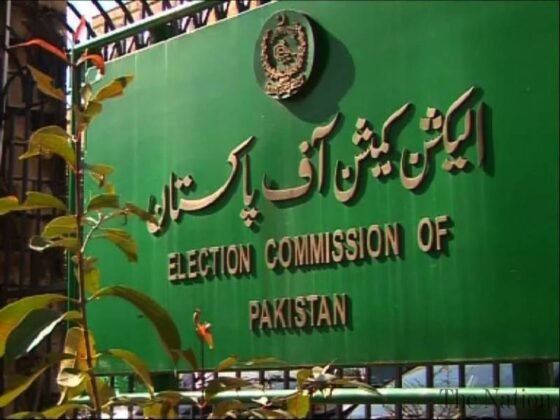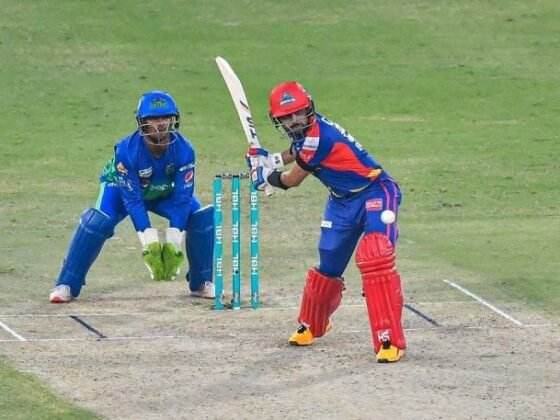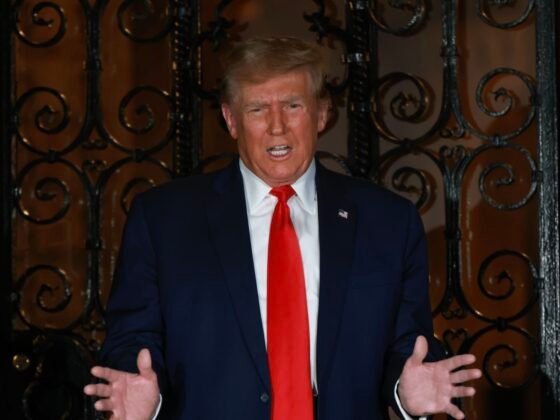
Islamabad’s Purple Mosque is making an attempt to rebrand itself as a spot of peaceable worship, 10 years after greater than 100 supporters of its Taliban-promoting former chief Abdul Aziz have been killed in clashes with the military.
Regardless of public humiliation and durations of home arrest, the previous chief of Pakistan’s infamous Purple Mosque is inspiring a brand new technology of extremists together with his previous rhetoric — highlighting Islamabad’s ambivalent makes an attempt to convey non secular hardliners to heel.
Ten years after the army raid on his mosque made worldwide headlines and shocked his nation, Abdul Aziz stays influential, overseeing a community of seminaries as he requires a “caliphate” to be established in Pakistan.
Throughout his time on the helm of the Purple Mosque, Aziz shot to prominence for his inflammatory sermons, advocating jihad in opposition to the West and a hardline interpretation of Islam.
He unfold this message amongst his 1000’s of scholars, principally poor kids from rural areas who’re educated free of charge at madrassas affiliated with the mosque, sparking accusations of brainwashing from critics.
By 2007 issues had reached a tipping level.
His armed followers had begun taking his message to the streets of the capital, vandalising CD and DVD stalls and kidnapping Chinese language masseuses, with tensions rapidly degenerating into murderous clashes.
When the regime of then-President Pervez Musharraf launched an assault on the mosque on July 10, 2007, the military discovered itself going through closely armed jihadists.
The controversial operation was adopted minute-by-minute on stay tv, with greater than 100 individuals killed within the week-long effort to pacify the mosque and arrest its leaders.
The assault on the non secular web site sparked ferocious blowback from extremists throughout the nation, marking the emergence of the Pakistani Taliban (TTP) – an umbrella organisation for homegrown militant teams concentrating on the Pakistani state.
Within the following years Islamist violence elevated dramatically, with 1000’s of Pakistanis killed, maimed, or compelled to flee their properties as safety deteriorated.
Aziz himself was arrested as he tried to flee the besieged mosque in a burqa, taken straight to a tv studio and paraded within the garment – incomes the nickname “Mullah Burqa”.
– By no means convicted –
He confronted two dozen indictments, together with incitement to hatred, homicide and kidnapping. However Aziz was launched on bail in 2009.
“He was acquitted in all these instances, and the federal government has chosen to not file appeals,” stated lawyer and civil rights activist Jibran Nasir.
“There isn’t any willingness for prosecution in opposition to him.”
Regardless of temporary stints underneath home arrest, Aziz now seems to be galvanising the subsequent technology together with his fiery preaching — apparently with out worry of repercussions.
“The curious factor is that the military has gone after the TTP however not Aziz,” stated Pervez Hoodbhoy, a number one anti-extremist activist.
“There’s sympathy for his trigger that is larger than the worry of being attacked once more.”
Aziz is thought to boast of his relations with well-known jihadists like Osama Bin Laden and has spoken sympathetically concerning the Islamic State group. He has additionally condoned high-profile extremist assaults, just like the bloodbath on the Charlie Hebdo places of work in Paris.
“The impunity loved by Abdul Aziz and different radical clerics raises worry of the capital returning to a 2007-like scenario,” stated political commentator Zahid Hussain.
In 2014, a video of scholars from his madrassa voicing their assist for IS didn’t earn him any condemnation.
“There ought to be a caliphate on the planet together with in Pakistan,” stated Aziz in a televised interview round that point.
– Kicking the ‘hornet’s nest’ –
Aziz “is tolerated… as a result of it will be like touching a hornet’s nest”, explains former common Talat Masood.
Given the sensitivity of the inhabitants to non secular questions, intervening “would danger attracting sympathies”.
Authorities, nevertheless, look like holding him on a decent leash for now.
Aziz is not welcome on the Purple Mosque, which theoretically belongs to the state, and he has been positioned on the Pakistan’s anti-terrorist checklist.
A rally deliberate by his supporters to commemorate the 10th anniversary of the Purple Mosque siege was banned by the courts.
In latest months, the authorities have blocked roads surrounding the mosque to stop Aziz from holding rallies and have taken measures to cease him from preaching on Friday, even remotely by telephone.
The Purple Mosque’s new imam Maulana Aamir Sadeeq, an affable 30-year-old, stated it was time to “overlook the previous” and “the acute positions” of a decade in the past.
“We should put a distance between terrorism and us,” stated Sadeeq — who occurs to be Aziz’s nephew.
Sorry we’re not at the moment accepting feedback on this text.









